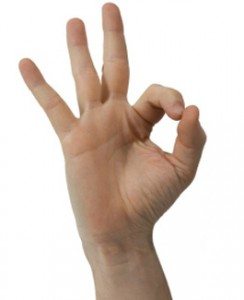Reading time: 6 minutes
FAUX PAS (fo-pa): noun. A social blunder, indiscretion, or tactless act that violates social norms, customs, or etiquette. Literally means “false step” in French.
Just reading the definition is enough to make you feel embarrassed to the core, am I right? How much more if you're the one stuck in an actual socially awkward scenario?
Committing a social faux pas especially if you're traveling in France can become some sort of a little disaster. To avoid committing these types of mistakes, better arm yourself with a list of knowledge concerning French taboos.
Trust me, you'd be happy to know these. Not only will you come across as a shining example of politeness and tact, you will also have a better time as well. Now, who wouldn't want that?
For starters, let's look at what's acceptable or not when it comes to speech.

Taboos in Small Talk and Conversations
1. If you can, it is so much more preferable to talk to a French person using their language. It doesn't matter if you speak French badly or your pronunciation is way off. The point is to do your best. You'll come across as respectful if you do so, instead of prattling off in your English.
(Author's note: Personally, I don't really mind this. There could be other reasons why French people would rather talk in French than English, such as difficulty in pronouncing English words which could lead to feeling annoyed about having to speak in English. It's not really all because we super love our language. Yes we do, but not to the point that we demand everyone to talk to us using French.)
2. In relation to number 1, you can use “bonjour!” to say hello. If you are truly at a loss on what to say in French, simply say “Je ne parle pas francais. En anglais, s’il vous plait.” This means, “I do not speak French. In English, please.” But the best thing is still to learn basic French phrases when traveling in France.
3. Mind your tu and vous! In English, it doesn't matter whom you're speaking to, there is only one kind of 'you' word to use. In French, however, you may end up insulting someone if you don't choose the right you. Tu denotes a familiarity or level of closeness with the person you're talking to. Vous, on the other hand, shows formality and respectful distance. Make sure to choose the proper you for each situation.
4. Conversation starters that may be popular in other cultures don't sit well with the French. These include questions involving money or personal inquiries such as “what do you do for a living?”, “are you married?”, “do you have kids?” Stick to safer routes such as French culture, art, food, music, philosophy, architecture, and popular events. Just make sure you know what you are talking about.
5. Never ever flaunt your wealth during conversations. This is considered shameless and seen as bad taste. Your words will not be considered as a sign of good social status as well.
6. Use the words Madame (for females), Mademoiselle (for young females), and Monsieur (for males) to address a person. The French are generally formal which is often the reason why they're being regarded as aloof or cold. You can still be friendly and warm without going overboard.
7. If you're in France for business, avoid droning on and on about business talks during lunch. The French believe that there is more to life than working nonstop. Sit back, enjoy your meal, and talk about something else aside from business. There's plenty of time for that when not in a table filled with good food.
8. Break the ice with a quick “bonjour” followed by madame, mademoiselle, or monsieur. Always say “merci” (thank you) and s’il vous plait (please). Good manners are awesome wherever you are.
9. It is considered bad manners to ask questions about political preferences. Wait for the person to open up that sort of conversation; don't jump into it.
10. Praises and compliments about everything French (not criticisms) are rather favorable.
11. Don't launch into lengthy talks about your opinion on French leaders and history.
Still Stuck at Intermediate French?

Break through the plateau with our proven coaching and study method.
Actions and Gestures
Just like individuals have their own sets of quirks or little personal issues that they take offense about, so do nations and different parts of the world. A harmless gesture to you might come across as incredibly rude to others. The key is to take note of these little cultural differences.
When you're talking to a French person and especially if you're in France, always be mindful of the following reminders.
- Making a fist with one hand and slapping the top of it with your other hand is considered rude.
- The American OK sign which is made by forming a circle using the thumb and index finger while the rest of the fingers are straight, can mean “zero” or “worthless”. Avoid it to avoid getting misinterpreted. The French OK sign is the thumbs up sign.

Nope this is not A-Okay at all.
Still Stuck at Intermediate French?

Break through the plateau with our proven coaching and study method.
3. Shaking hands is for formal transactions and acquaintances. If you're greeting someone familiar to you, you're better off greeting the person with a “la bise” or kiss on the cheek.
4. Do not give a present of red carnations. This flower represents bad will in France.
5. Chrysanthemums are not great as gifts either. Mums are usually reserved for mourning.
6. Holding an umbrella open indoors may be considered as bad luck.
7. In other cultures, it is perfectly okay to bring wine to someone's house when you're invited for dinner. But in old France custom, some people might consider this as an insult that the host could not provide the guests with good wine. Unless you're quite familiar with the hosts and you're bringing a good wine that you would like them to try.
(Author's note: I personally like to bring wine or champagne when invited to friend's houses. Why? So that there would be more booze, of course! So maybe this custom is no longer very appropriate in modern cases.)
8. Presenting red roses to your hostess can be thought of as inappropriate behavior. Red roses mean an expression of love. Avoid giving it to casual or professional acquaintances as well. Unless, you do mean to woo the person.
9. Bring a present when visiting your friends' or relatives' homes. Flowers are good (except for those mentioned above), and are usually given in odd numbers except thirteen which means bad luck.
10. Always dress well when stepping out in public. It would help if you don't dress up like a fashion terrorist.
11. It is considered respectful for a man to stand up or show the inclination to do so when a superior enters the room or joins the group.
12. Snapping your fingers is considered offensive.
13. Chewing gum in public is a no-no and could come across as vulgar.
14. When pointing to a certain direction, use your whole hand to do so. Do not use your index finger to point.
15. Do not sit with your legs spread apart. The French consider this impolite.
Dining
Of course, this is one topic that calls for a long list. Dining is an important part of French culture. Avoid social gaffes and take not of these tips.
- When in cafés, never ever complain about how long your order is taking. Part of the whole experience is enjoying yourselves and relaxing. This is not the place to rush.
- Do not order one dish only when you're dining in a restaurant.
- Soft drinks are not to be drunk with a good meal.
- Don't ask for a doggy bag.
5. Parisian cafés do not add ice on their drinks. Do not expect or demand for any.
6. Wait for the host or hostess to say “bon appetit!” before you start to dig in on your food.
7. Place your table napkin on your lap immediately when you are seated.
8. Eat slowly. Do not inhale all your food in one go.
9. Make eye contact as you say “santé” to the other people in the table. It literally means that you are wishing them good health and is deemed polite.
10. Avoid leaving food on your plate. This means you did not enjoy the quality of the food, or it suggests that the host does not know how to serve proper potions.
11. Don't serve yourself wine first. As a proper courtesy to everyone else in the table, ask them if they want wine before you pour some for yourself.
12. If the wine has just been opened, pour a little bit into your own glass first so that the little pieces of cork don't end up in someone else's glass.
13. Avoid putting a piece of bread in your plate. Instead, place it on the table right beside your plate.
14. Only bite directly into a piece of bread if there is something spread on top of it. Otherwise, break it into a small piece before you eat it.
15. Unless a certain type of food needs to be dealt by hand, touching food with your fingers is strictly limited at the dinner table.
16. Don't place your elbows on top of the table.
17. Keep your hands on the table not under it.
18. Refrain from crossing your knife and fork on top of your plate. This signifies that you haven't eaten enough.
19. Don't place the loaf of bread upside down. This is considered bad luck.
20. After a course, wipe your plate with a piece of bread for the next dish ( use a piece of bread on your fork)
So there you go. Don't you feel more polite already? Re-read this list time and again to remind you how not to act in France.
But wait...before you jump on that plane to Paris, make sure you grab a copy of the best phrasebook available in the market. Click the photo below.



Ah, what a cute list!
I’m a french (young) womand and I actually live in Paris, it made me laugh.
Anyway, I’d like to argue on some points.
First: about the “madame”, “mademoiselle” thing, nowadays french people do not have to do this disctinction. As you may know, you call a woman “madame” when she’s married or old enough, and “mademoiselle” when… well, she’s obviously too young. But, and it’s a feminist thing, even though you’re talking to a teenager, you now have to call her “madame”. It’s new and some people don’t know about the disparition of “mademoiselle”.
Then, you talk about politeness and… YES! Please, be polite with a french. We have the reputation of being rude people when we’re not. We say “bonjour”, “au revoir” everytime, to everyone when we enter in a room/restaurant/bakery/anything. The last day, I had a talk with an american woman and she was truly amazed that french people say those words EVERYTIME for EVERYTHING. So, when you’re going to buy a baguette, don’t forget to say “Bonjour, I’d like to have a baguette” and when you have it, to smile (always better!) and say: “Merci, au revoir”.
When you speak to a french person and you obviously speak badly or anything, and you do the best, it doesn’t really matter if you don’t use properly the “tu” and “vous” things. We know how much our language is difficult and we’re not that annoyed when someone hasn’t a proper french.
“When in cafés, never ever complain about how long your order is taking. ” WRONG. Being french is being always in the rush and always complaining. We love that. But not too much. (okay, especially if you’re in Paris)
“Don’t ask for a doggy bag.” Because we don’t have this “concept” here. Though, I’ve seen some cafés/restaurant doing it.
Also… I don’t really understand your rules during dinner. We eat as you do. We don’t eat differently. We’re just polite. Oh, and, I’d like to add: “After each course, wipe your plate with a piece of bread. ” It’s not really polite to do that. Really. I love doing it but if I’m the restaurant (not a cheap one), I don’t or discreetly.
OH, and please, if you’re coming to Paris, beware when you’re in the underground. The Parisien doesn’t like the tourists in there.
Anyway, it’s a great list!
Thanks for your article(s). Even though I’m french, it’s a pleasure.
P.S: Pardon for my english, I have been learning it for almost 10 years but I still do some stupid mistakes.
Au revoir !
“Mademoiselle” only disappeared from official paperwork… it is still OK to use it in conversation or even in letters and e-mails. You might even offend somebody if you call her “madame” and she considers herself too young. Although, to be fair, if anyone gets offended by being called mademoiselle or madame, then they’re a dick and you don’t really want to talk to them anyway 🙂
Actually your English is very good. This is one of the points, French people don’t speak English. You are better off with German, Italian or spanish thanbEnglish
You are right.
[…] 40 Things You Need to Know About French Taboos (talkinfrench.com) […]
“that the host does not know how to put proper potions” should be “that the host does not know how to serve proper portions”
😉
Fixed!
[…] French Taboos […]
Hello, I’am french and I would say that the bread must be on the left of the plate. So you dont use the bread of your neighbors. I enjoy your post and kindness for french people. Excuse my language, I am 70 and just learn english at school so many years ago!
Merci Rollo for this additional information. 🙂
I love this article and the responses. I just discovered this site, and I am American. Merci!
Bonjour, je suis française. Cet article m’a beaucoup amusée. Ne vous souciez pas trop de l’étiquette ; les français savent qu’une personne qui n’est pas de leur culture ne se comportera pas comme eux et c’est leur responsabilité de bien recevoir leurs visiteurs, pas l’inverse.
Sentez-vous libre d’être vous-même, c’est le plus important.
Amicalement
oops, looks like I’ve made lots of faux pas already. The MOST important advice is to always say “bonjour and au revoir” whenever and to whomever. It goes such a long way even though we have long since abandoned this social pleasantry in Britain.
This was so funny! I never realised all these “secret rules”. I’m French, living in England, and now I understand the differences! The only thing I never knew was to not cross fork and knife on the plate.
Funny thing about putting bread upside down being bad luck: the bakers used to put one bread upside down because it was the one reserved for the town’s executioner, hence why we don’t like it upside down: executioners were outsiders.
Also, even if you wouldn’t jump into a political discussion right about with a stranger… politics are a very appropriate dinner conversation with family and friends.
Whenever I go home, I find myself discussion (with passion) politics with my parents, sometimes even right in the car on the way home from the airport… We love heated discussions and they don’t lead (at least not most of the time) to a breakdown in relationships!
THis was a great read, thank you!
Your family may be an exception, Clotilde … “Never discuss politics and religion” : this old french adage is still current. Religious matters are always strictly personal. Political subjects may be carefully “attempted” only with the closest people, if you’re sure that potential disagreements don’t jeopardize your relationship.
But in any case, just before or after elections, avoid political debates with french people, especially if you’re a foreigner … 🙂
In la France profonde, I have learned that polite guests leave a tiny bit of food on the plate to indicate that they have had, as the English would say, ‘an elegant sufficiency’ and that they are not left hungry by an insufficient portion served by the hostess. Knife and fork left forming a big V or even crossing somewhat indicates that they have finished their meal whereas the English put knife and fork neatly alongside each other.
You are absolutely right but again it depends the region or who educates you. Like the number of “bises” we do when we meet someone. Some French people shared before their own “etiquettes” and it was strange for me or even quite the opposite. I would say if you go to France, try to be have a quick look about how people behave. + If you do a mistake that’s not a big deal. People understand that you are not familiar with some “rules”.
Loved reading this, as well as reading the comments of other French readers. I would love it even more if I had these observations to read in French, so I could be learning more French at the same time that I’m learning about the French. I also appreciate the extra clues about pronunciation when this is ‘tricky’ – as you did for “faux pas”. Merci beaucoup et au revoir!
I am American from the Deep South so you can imagine my accent. I have been fortunate to visit France 3 times, most recently in May 2015. Each and every visit, whether in Paris or various cities in Alsace, I have been treated warmly and felt welcome – and I do not speak any language except English. I find people all over Europe to be considerate and helpful so long as the attitude I present is warm and friendly! I even taught a shopkeeper in a Paris fabric shop the meaning of “I am just browsing” and how to spell it. That was 3 years ago and it still makes me smile!
Thank you Darlene for sharing your story. 🙂
Bonjour, Monsieur! Merci pour ce leçon. I live in Virginia; we tell our students here that, in France, “browsing” is not encouraged: one knows what one wants before they enter the store because the items are in the window, is that right? Our books are so old that we may be behind the times, but until I hear differently I will continue to tell my kids not to browse. I’m wondering if that is the reason the French shopkeeper did not know the word? I love your words and website, merci mille fois.
Au revoir,
Candy LeDoyen
You can “jeter un coup d’oeil” no problem at all. But if you ask a lot of questions and do not plan the product in particular for a cheap item, it is considered a bit rude.
I am an American from the deep south that speaks very little French. But my French professor said I have a good accent…so maybe that’ll help if I ever go to France?
Thak you so much for this article and all of the repliers and your help. My dream is to learn french and live in paris so merci for taking one more step in tbat direction.
I loved the article! Yes French are very polite but most importantly I have found them to be very charming if an effort is made to speak French. And please fellow Americans watch it stop yelling in restaurants Garcon! Garcon to get the waiter’s attention!
Thank you!
One other thing, if you’re getting ice cream, NEVER ask for a sample. It’s considered extremely weird and rude. I’ve seen tourists do this. Some vendors won’t even give you a sample. Although they will let some tourists off the hook.
Some shops like Amorino let you try I think but in general you are correct.
The article was really interesting! I am a student from Greece who just got the B2 degree in French and I am in love with their language and culture. I hope one day I will travel in Paris and use all these information!
Hi could you please tell me if this phrase is offensive, an it was not directed at anyone. It must be a French thing.
I am not sure if I fully understand your comment. Which phrase is offensive? Thank you
Bonjour Frederic! Merci pour cette leçon! You mentioned that soft drinks are not to be drunk with a good meal. Is water or mineral water acceptable? Merci!
Apprendre la lingue, c’est toujours un defie, meme affreux. On fausse laisse tomber l’inquietude et la crainte de faire une erreur et arret d’etre une perfectionnist!
I’d be curious to know where you feel it is appropriate to put the glasses for wine and water. In England we tend to put them to the top right of the plate, but I have a Parisian friend who insists that the right place for the wine glass is in the 12 o’clock position to the plate.
Hello Tom, I think your French friend is right. We will do this way in France but I don’t think it is bad or rude to put the plate in the position you mentioned. Thank you
My faux pas: My friend and I were having dinner seated outside at a cafe on the left bank in Paris when it became clear it was going to start pouring rain. Our waiter got all who were out there moved to a sort of banquet room inside. He was helpful and funny and charming. When we finished eating, we talked to the Brits who were seated beside us and decided it would be the most helpful if we went to the corner where he was settling the tab with someone else. Big mistake. He clearly felt pressured and stressed. We could only apologize. So perhaps another rule is to be patient at the end of a meal too. If it’s not a cafeteria where you pay as food is being handed to you across a counter, wait. It’s a little tricky, because the waiter does not want to pressure you to leave, very opposite the American norm. so knowing about placing silverware across the plate is helpful–a signal, not a demand.
Thank you for sharing Barbara; very interesting. 🙂
Practise is a verb.
Practice is a noun.
In British English yes but for the american english it’s the same. See here https://www.wordreference.com/fren/pratiquer